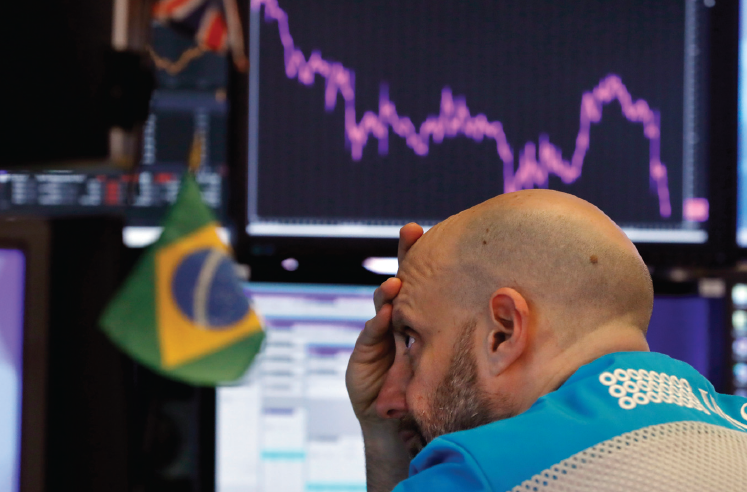Economist: virus could cause global recession by June


Economist and Asia expert Stephen Roach believes that the global outbreak of the coronavirus makes the risk of a worldwide recession a "distinct possibility'' by June.
The world's largest economies, including the US, Germany, France and Japan, have few remaining monetary tools to spur growth and therefore are vulnerable to an outside shock, he said in an opinion article published Wednesday by Project Syndicate.
"There was no margin for an accident at the beginning of the year," said the Yale University senior lecturer and former chairman of Morgan Stanley Asia.
Yet, there has been a big accident: the spread of coronavirus.
"The world economy was weak, and getting weaker, when Covid-19 struck. In these days of dip-buying froth, China's sneeze may prove to be especially vexing for long-complacent financial markets. … The risk of outright global recession in the first half of 2020 seems like a distinct possibility."
China is the world's largest exporter and plays a "critical role" in the world's supply chain, making its economic health central to world prosperity.
The International Monetary Fund pegs China's share of global output at 19.7 percent, or more than double its 8.5 percent share during the 2003 SARS outbreak, Roach said.
Supply chain disruptions in key industries including auto parts and apparel could slow the US economy, some analysts warned.
New York investment bank Goldman Sachs believes fallout from the coronavirus will slice as much as 0.8 percent from the US economy in the first quarter, up from the previously estimated 0.5 to 0.6 of a point.
Roach said prospects for 2020 are uncertain because the world's major economies are slowing. Japan, the world's fourth-largest economy, contracted at an annual 6.3 percent rate in the fourth quarter. The downturn was worsened by the imposition of a consumption tax that further dampened consumer demand. Germany's economy shrank 3.5 percent in December, and France's contracted 2.6 percent.
"The United States, the world's second-largest economy, appeared relatively resilient by comparison, but 2.1 percent inflation-adjusted Gross Domestic Product growth in the fourth quarter of 2019 hardly qualifies as a boom," Roach said. "And in China — now the world's largest economy in purchasing power-parity terms — growth slowed to a 27-year low of 6 percent in the last quarter of 2019."
Roach said coal provides about 60 percent of China's energy, but coal consumption is down 38 percent from the same period a year ago. Transportation has been disrupted by government-imposed lockdowns to stem the spread of the virus, and that makes it "extremely difficult" for China's nearly 300 million migrant workers to return to work.
He said China's slowing economy will cut demand for US imports, further eroding the American economy.
"The shortfall of Chinese demand is also likely to hit an already weakening European economy very hard — especially Germany — and could even take a toll on a Teflon-like US economy where China plays an important role as American's third-largest and most rapidly growing export market," Roach said.
"The sharp plunge in a preliminary tally of US purchasing managers' sentiment for February hints at just such a possibility and underscores the time-honored adage that no country is an oasis in a faltering global economy."
- Liaoning fire: Report urges legal action against restaurant operator and seven others
- Historical Han Dynasty slips go on display in Hohhot
- Shanghai unveils steps to build sci-tech innovation corridor in Yangtze River Delta
- Xiangchao concludes with Yongzhou claiming championship
- Answers
- CPC leadership meeting urges steadfast implementation of eight-point decision on improving conduct





































